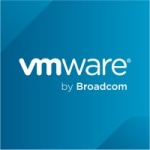The most valuable features are topic-based eventing, scalability, and retention periods.
My organization is transforming by using the new SOA/eventing-based architecture. The application depends on the employees’ information events. Kafka is very helpful in implementing this. It increases the performance and gives the details to multiple external/internal teams using Kafka topics in an asynchronous manner.
For example, if someone is moving from one office to another one, we have to update the software. While updating it, the system puts that event in a topic so that all other consumers can update that person’s new location. This can include the payroll team, the insurance team, and the hospital network.
The retention period helps us retain the data in the topic for the configured number of days. In this example, if any of the consumers fail to consume the message from the topic, then that message will be there until the retention period ends.
I would like to see a more user-friendly GUI.
We have used this solution since December, 2015.
If you are using the same group ID for multiple topics, it may shut down the application. We have faced this issue before.
We have not had any scalability issues.
I would give technical support a rating of 6 out of 10.
We were using ActiveMQ, which is just a messaging system. We are changing because of Kafka’s added value of scalability, retention, and high payload support.
The installation was somewhat straightforward.
The solution is worth the money.
This is the best tool I have ever used for asynchronous, event-based solutions.












